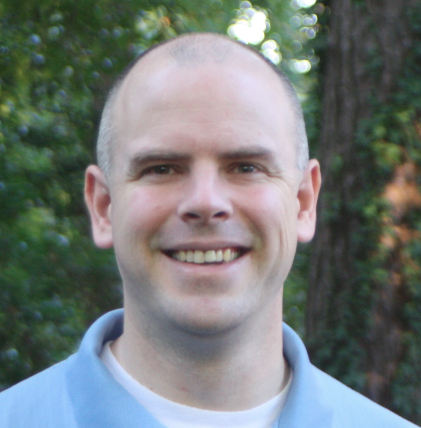J. Scott Hale
Associate Professor of Microbiology and Immunology
T cell Biology, Immunological Memory, Anti-viral Immunity, Helper T cells, Memory T cells, Epigenetics, DNA Methylation

Molecular Biology Program
Education
B.A. University of Utah
Ph.D. University of Washington
Research
My laboratory studies T cells and their role in the generation of immunological memory in response to viral infection and immunization. Upon activation, naïve CD4+ T cells proliferate and differentiate to become distinct types of T helper cell subsets that have specialized effector functions that are tailored to protect the host against the specific type of invading pathogen. During acute viral infection, newly activated CD4+ T cells differentiate into two functionally distinct T helper cell subsets: 1) Th1 cells that secrete IFNγ and contribute to cell-mediated immunity; and 2) Follicular helper T cells (Tfh) that migrate to B cell follicles and provide critical help to germinal center B cells and the generation of long-lived antibody responses. Following viral clearance, these subsets of T helper cells can become long-lived memory T cells that are poised to rapidly respond to reinfection by recalling their effector functions. Our studies focus on understanding the signals and mechanisms that promote the differentiation of these functionally unique subsets of effector and memory T cells and determine how these cells can be utilized to improve protective immune responses. We utilize various models of infection and vaccination in mice to study the basic mechanisms of T cell differentiation and function. We take advantage of mouse knockout and conditional knockout models to understand how transcription factors and epigenetic regulators modulate the gene expression programing and function of pathogen-specific effector and memory T cell subsets. Understanding how T cells acquire and maintain their specialized functions will provide important insights that can be used to improve prime and boost vaccination strategies to generate long-lived protective immunity against infectious diseases.
Major projects in the lab include:
- Investigate how different types of infections and protein immunizations affect the lineage commitment versus plasticity and function of Tfh and non-Tfh memory cells.
- Determine whether Tfh and Th1 memory cells maintain their lineage stability and functions following multiple infections/ boosts, or during persistent viral infection.
- Gene expression programming mediated by changes in DNA methylation that regulate the differentiation and maintenance of memory T helper cell subsets.
- The role of the transcription factor Tbet in Tfh and Th1 cell function during acute and chronic viral infection.
References (Selected Publications)
- Nguyen NX, Richens AW, Sircy LM, Allard DE, Kolawole EM, Evavold BD, Bettini M, Hale JS. Immunogen-Specific Strengths and Limitations of the Activation-Induced Marker Assay for Assessing Murine Antigen-Specific CD4+ T Cell Responses. Journal of Immunology. 2023 Apr 1;210(7):916-925. doi: 10.4049/jimmunol.2200638. PubMed PMID: 36883856; PubMed Central PMCID: PMC10038905.
- Galloway DR, Nguyen NX, Li J, Houston N, Gregersen G, Williamson ED, Falkenberg FW, Herron JN, Hale JS. The magnitude of the germinal center B cell and T follicular helper cell response predicts long-lasting antibody titers to plague vaccination. Frontiers in Immunology. 2022;13:1017385. doi: 10.3389/fimmu.2022.1017385. eCollection 2022. PubMed PMID: 36389793; PubMed Central PMCID: PMC9650111.
- Baessler A, Novis CL, Shen Z, Perovanovic J, Wadsworth M, Thiede KA, Sircy LM, Harrison-Chau M, Nguyen NX, Varley KE, Tantin D, Hale JS. Tet2 coordinates with Foxo1 and Runx1 to balance T follicular helper cell and T helper 1 cell differentiation. Science Advances. 2022 Jun 17;8(24):eabm4982. doi: 10.1126/sciadv.abm4982. Epub 2022 Jun 15. PubMed PMID: 35704571; PubMed Central PMCID: PMC9200277.
- Sircy LM, Harrison-Chau M, Novis CL, Baessler A, Nguyen J, Hale JS. Protein Immunization Induces Memory CD4(+) T Cells That Lack Th Lineage Commitment. Journal of Immunology. 2021 Sep 1;207(5):1388-1400. doi: 10.4049/jimmunol.2100210. Epub 2021 Aug 11. PubMed PMID: 34380649; PubMed Central PMCID: PMC8387422.
- Olatunde AC, Hale JS, Lamb TJ. Cytokine-skewed Tfh cells: functional consequences for B cell help. Trends in Immunology. 2021 Jun;42(6):536-550. doi: 10.1016/j.it.2021.04.006. Epub 2021 May 8. Review. PubMed PMID: 33972167; PubMed Central PMCID: PMC9107098.
- Hale JS, Ahmed R. Memory T follicular helper CD4 T cells. Frontier in Immunology. 2015;6:16. doi: 10.3389/fimmu.2015.00016. eCollection 2015. Review. PubMed PMID: 25699040; PubMed Central PMCID: PMC4313784.
- Hale JS, Youngblood B, Latner DR, Mohammed AU, Ye L, Akondy RS, Wu T, Iyer SS, Ahmed R. Distinct memory CD4+ T cells with commitment to T follicular helper- and T helper 1-cell lineages are generated after acute viral infection. Immunity. 2013 Apr 18;38(4):805-17. doi: 10.1016/j.immuni.2013.02.020. Epub 2013 Apr 11. PubMed PMID: 23583644; PubMed Central PMCID: PMC3741679.
